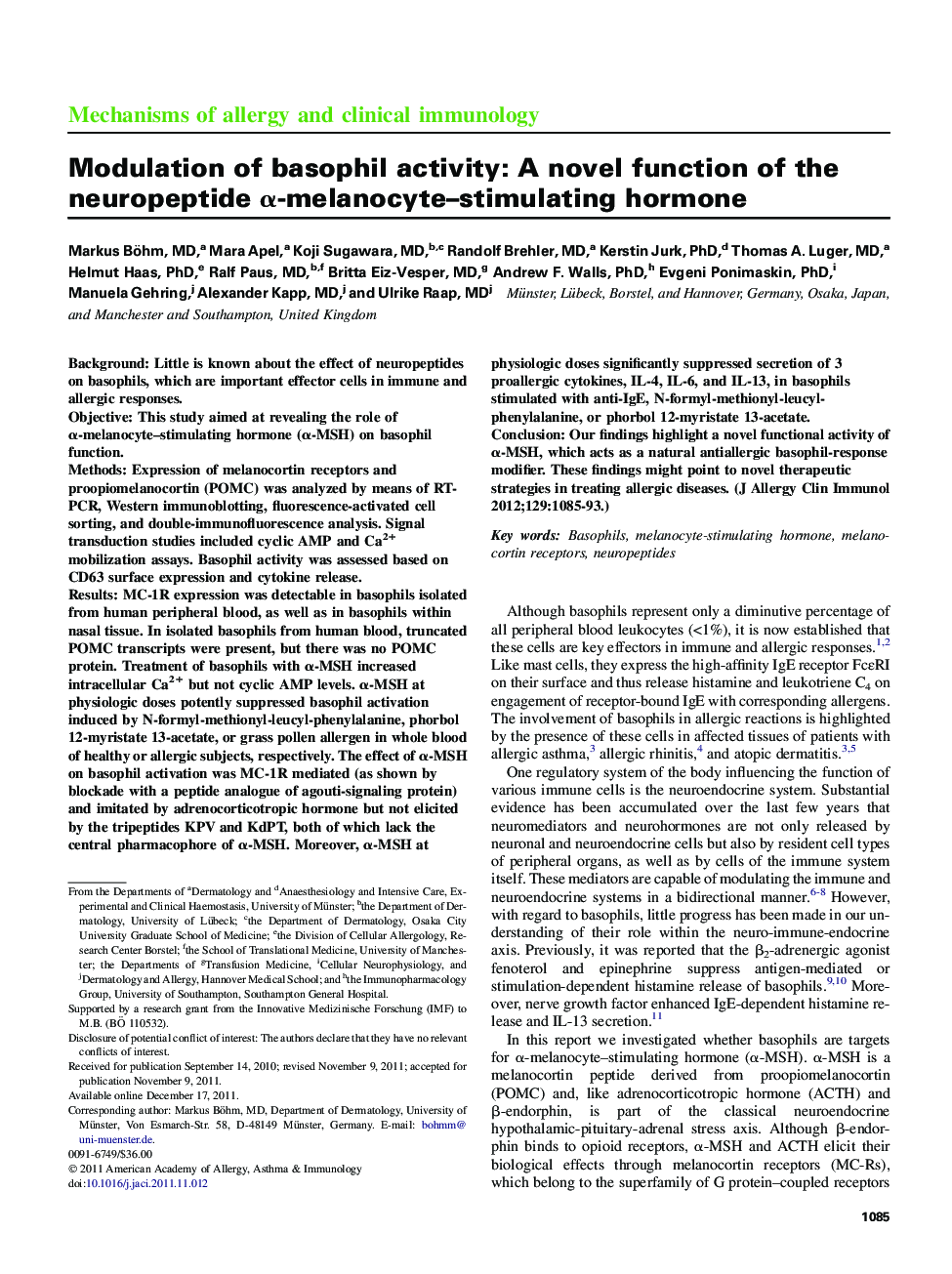| کد مقاله | کد نشریه | سال انتشار | مقاله انگلیسی | نسخه تمام متن |
|---|---|---|---|---|
| 6066963 | 1201898 | 2012 | 9 صفحه PDF | دانلود رایگان |

BackgroundLittle is known about the effect of neuropeptides on basophils, which are important effector cells in immune and allergic responses.ObjectiveThis study aimed at revealing the role of α-melanocyte-stimulating hormone (α-MSH) on basophil function.MethodsExpression of melanocortin receptors and proopiomelanocortin (POMC) was analyzed by means of RT-PCR, Western immunoblotting, fluorescence-activated cell sorting, and double-immunofluorescence analysis. Signal transduction studies included cyclic AMP and Ca2+ mobilization assays. Basophil activity was assessed based on CD63 surface expression and cytokine release.ResultsMC-1R expression was detectable in basophils isolated from human peripheral blood, as well as in basophils within nasal tissue. In isolated basophils from human blood, truncated POMC transcripts were present, but there was no POMC protein. Treatment of basophils with α-MSH increased intracellular Ca2+ but not cyclic AMP levels. α-MSH at physiologic doses potently suppressed basophil activation induced by N-formyl-methionyl-leucyl-phenylalanine, phorbol 12-myristate 13-acetate, or grass pollen allergen in whole blood of healthy or allergic subjects, respectively. The effect of α-MSH on basophil activation was MC-1R mediated (as shown by blockade with a peptide analogue of agouti-signaling protein) and imitated by adrenocorticotropic hormone but not elicited by the tripeptides KPV and KdPT, both of which lack the central pharmacophore of α-MSH. Moreover, α-MSH at physiologic doses significantly suppressed secretion of 3 proallergic cytokines, IL-4, IL-6, and IL-13, in basophils stimulated with anti-IgE, N-formyl-methionyl-leucyl-phenylalanine, or phorbol 12-myristate 13-acetate.ConclusionOur findings highlight a novel functional activity of α-MSH, which acts as a natural antiallergic basophil-response modifier. These findings might point to novel therapeutic strategies in treating allergic diseases.
Journal: Journal of Allergy and Clinical Immunology - Volume 129, Issue 4, April 2012, Pages 1085-1093